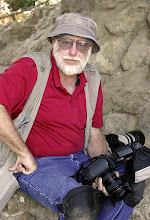An inconvenient Second Amendment essay
I keep hearing an argument that the Second Amendment should not apply to modern weapons because it was written when armies used muskets and civilians also used muskets, therefore it should mean that "the right to bear arms" applies only to muskets.
Really!? Here is the text:
A well regulated militia, being necessary to the security of a free state, the right of the people to keep and bear arms, shall not be infringed.
First, you must understand that the militia refers to all able-bodied men from 17 to 45. The actual legal requirements change from time to time. For instance women are now mentioned as being part of the militia in the latest version of US Code. The same code, even the latest one, refers to the organized and unorganized militia--the organized being those belonging to the national guard or the naval militia and the unorganized are those who are not members of the guard or naval militia.
Then, the word regulated refers to drill or training. The organized militia is drilled or trained. That is what gives it organization. Next, the militia is necessary for the security of a free state. Which in this use means the nation. When the freedom of the nation is threatened the duty of the militia is to defend it.
If the above is a logical progression, then it follows that if the organized militia falters or fails, then the unorganized militia must rise up to assist or defend the nation's freedom as long as possible.
The last is one long command in two dependent clauses, "the right of the people to keep and bear arms, shall not be infringed." In every case, wherever else in the constitution's Bill of Rights the word "people" is used, it refers to all people and their individual rights. In subsequent debates, commentaries by founding fathers and even supreme court decisions, this has been made clear. The Second Amendment refers to an individual right.
Lastly, "shall not be infringed." Infringement means the same now as it did then. A breaking of a pact or contract, a restriction, or act so as to limit or undermine. Therefore, no law can legally restrict private ownership of weapons because "arms" means weapons and more than that, infers that the weapons must be equal to the task of defending the nation's freedom.
That means military grade weapons--every one of them. Understand that practicality suggests that keeping a tank in your backyard is not going to happen. But a working military rifle, even the ugly black ones with the pointed bullets and multi-round magazines is practical and the right to keep and use one shall not be infringed.
When you hear the politicians start talking constitutional amendment--that's when the fan gets dirty brown.
